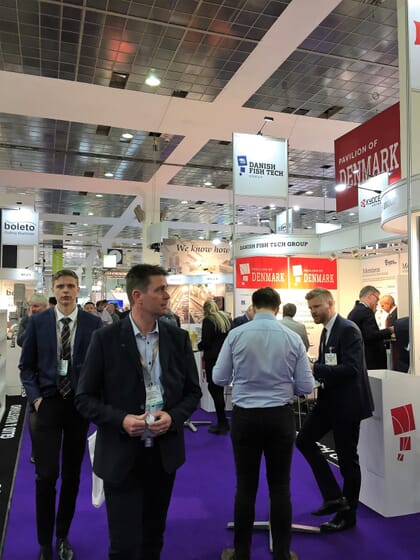The companies, including aquaculture stalwarts such as Aqua Culture Supply, Hvalpsund and Hydrotech, make up the largest ever delegation to join the Pavilion of Denmark to date.

“For years Danish suppliers have been front runners in developing new technology and constantly focusing on meeting the ever-increasing demand on the world markets making them leading suppliers to the industry,” says Martin Winkel, Head of Danish Fish Tech Group, organizer of the Danish pavilion and Denmark’s largest export network for suppliers to the global fishing, aquaculture and seafood processing industries.
“The companies are showcasing solutions that meet the increased demand for automation, sustainability, long lasting equipment, food safety and strict hygiene as well as innovative packaging solutions and waste handling to maximise the value generated from fish,” Winkel adds.
The handling of waste products in particular has, over the last five years, become increasingly important to the fish processing industry. What was earlier looked upon as waste and a cost has now turned into a valuable product.
”The industry has discovered that waste can actually add new profitable products to the portfolio when treated as a valuable part of the production. If done right upstream, waste is eliminated and turned into high quality profitable products used in – for example – the health or pharmaceutical industry. The environmental impact is also reduced significantly when waste is no longer leaving with the process water,” says Kristina Joensen, CEO, Dantech - Danish Technology Center, which supplies waste water treatment solutions to the fish processing industry worldwide.
Meanwhile Landia, which supplies grinding tanks for producing fish silage, is experiencing a high demand for solutions that help the fish industry maximise the use of the fish.
“The breeders are really focusing on the environmental aspect and making use of all of the fish as part of their green profile. Norway has for many years been ahead of the development due to demands from public authorities. Now an increased number of countries are looking for solutions that can help them convert waste into silage instead of burning or landfilling the waste,” says Landia's Jesper Borch Svendsen.

